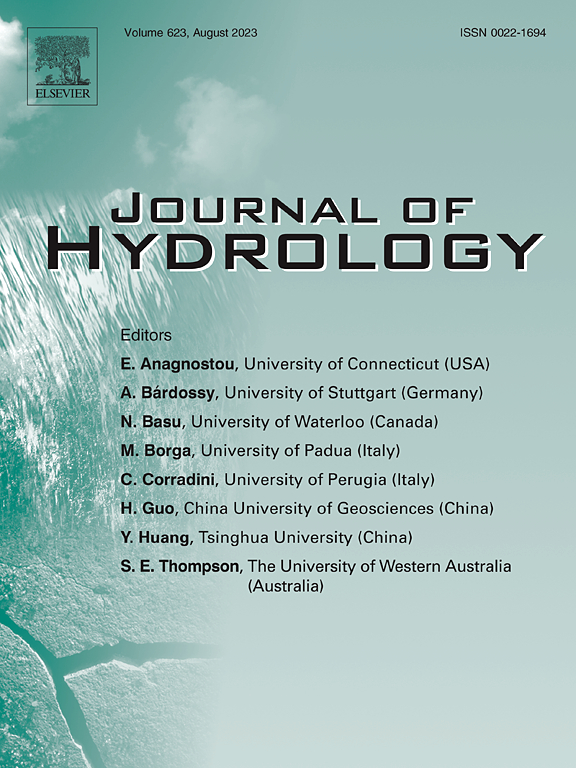Future precipitation extremes and urban flood risk assessment using a non-stationary and convection-permitting climate-hydrodynamic modeling framework
IF 5.9
1区 地球科学
Q1 ENGINEERING, CIVIL
引用次数: 0
Abstract
Urban planners and engineers rely on historical climate data to plan and design flood protection infrastructure that should withstand extreme flooding events with 1% annual exceedance probability (the 100-year flood). Here, we examine how hourly precipitation extremes are expected to change as temperatures rise and how this will affect urban flooding. The changes to short-duration rainfall extremes, often insufficiently considered in practice, are addressed utilizing a new temperature conditional extreme precipitation scaling approach and a novel regional climate convection-permitting model ensemble for +2 °C and +3 °C global warming scenarios. Based on hydrodynamic modeling, we estimate how future precipitation extremes translate into flood risks in two pre-alpine communes in Germany. Ignoring the impacts of climate change may lead to severe underestimations of flood risks. The +3 °C global warming scenario translates into an increase of 60% of affected buildings by the highest flood risk category (water level of 1 m and above). The increase in flow intensities will be greater in the commune characterized by steeper terrain. The results suggest that recently planned or implemented infrastructure projects may not be adequately equipped to cope with the anticipated effects of climate change in the coming decades.

未来极端降水和城市洪水风险评估使用非平稳和对流允许的气候-水动力模型框架
城市规划者和工程师依靠历史气候数据来规划和设计防洪基础设施,这些基础设施应该能够承受每年超过1%的极端洪水事件(百年一遇的洪水)。在这里,我们研究了每小时极端降水如何随着气温上升而变化,以及这将如何影响城市洪水。在+2°C和+3°C全球变暖情景下,利用一种新的温度条件极端降水标度方法和一种新的允许区域气候对流的模式集合来解决短时程极端降水的变化,这种变化在实践中往往没有得到充分的考虑。基于水动力学模型,我们估计了未来极端降水如何转化为德国两个前高山公社的洪水风险。忽视气候变化的影响可能导致对洪水风险的严重低估。全球变暖+3°C的情景意味着受洪水风险最高类别(水位1米及以上)影响的建筑物增加60%。在地形较陡的公社中,水流强度的增加幅度较大。研究结果表明,最近规划或实施的基础设施项目可能无法充分应对未来几十年气候变化的预期影响。
本文章由计算机程序翻译,如有差异,请以英文原文为准。
求助全文
约1分钟内获得全文
求助全文
来源期刊

Journal of Hydrology
地学-地球科学综合
CiteScore
11.00
自引率
12.50%
发文量
1309
审稿时长
7.5 months
期刊介绍:
The Journal of Hydrology publishes original research papers and comprehensive reviews in all the subfields of the hydrological sciences including water based management and policy issues that impact on economics and society. These comprise, but are not limited to the physical, chemical, biogeochemical, stochastic and systems aspects of surface and groundwater hydrology, hydrometeorology and hydrogeology. Relevant topics incorporating the insights and methodologies of disciplines such as climatology, water resource systems, hydraulics, agrohydrology, geomorphology, soil science, instrumentation and remote sensing, civil and environmental engineering are included. Social science perspectives on hydrological problems such as resource and ecological economics, environmental sociology, psychology and behavioural science, management and policy analysis are also invited. Multi-and interdisciplinary analyses of hydrological problems are within scope. The science published in the Journal of Hydrology is relevant to catchment scales rather than exclusively to a local scale or site.
 求助内容:
求助内容: 应助结果提醒方式:
应助结果提醒方式:


